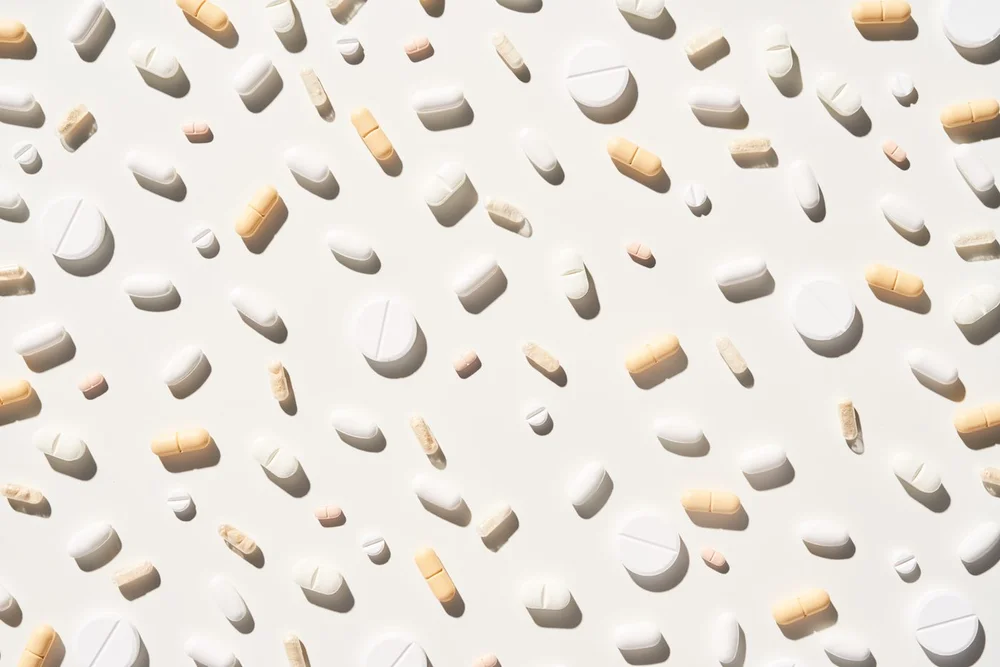How to Improve Your Gut Health After Being Sick
Medically Reviewed by Dr. Parris Kidd
Have you ever gotten so sick you needed to take prescription medication? Most of us have.
Commonly prescribed by doctors to reduce symptoms associated with the flu, common colds, or viral infections, antibiotics are powerful drugs that can slow down or completely halt the growth of bacteria in the human body. However, as with many medications, there are pros and cons to using antibiotics.
The Negative Effects of Antibiotics
The word “probiotic” comes from Latin: “pro” means “support,” and “biotic” means “life.” Antibiotic, on the other hand, has the exact opposite meaning and effect of probiotic.
Antibiotics are designed to kill the bad, harmful bacteria in our bodies, which is beneficial when we’re sick. Unfortunately, antibiotics also harm some of the good bacteria in the gut. Since antibiotics typically cannot discriminate between good and bad bacteria, they often kill both indiscriminately, leading to gut microbiome disruption and a decrease in microbial diversity. This imbalance, known as dysbiosis, has been linked to various gastrointestinal, immunological, and even neurological conditions.¹
The greatest danger of antibiotics, however, may not come from those prescribed by your doctor, but rather from the foods you consume. It’s estimated that around 70 percent of the total antibiotic use in the U.S. is for livestock. Since antibiotics are a major distruptor of the gut microbiome, it’s critical to eat antibiotic- and hormone-free meats whenever possible.²
Additionally, some other medications—such as certain birth control pills, pain medications, and anti-inflammatories—can also deplete the beneficial bacteria in your gut, further contributing to dysbiosis.³
Good Bugs vs. Bad Bugs
A healthy gastrointestinal (GI) tract is home to approximately half a pound of friendly bacteria, equating to about 30 trillion bacterial cells—the same number of bacterial cells as human cells in the body. This community of bacteria, known collectively as the microbiome, plays a significant role in health by contributing to neurotransmitter synthesis, including GABA (gamma-aminobutyric acid) and serotonin, which affect the brain and mood.¹
Some of these bacteria are beneficial to health, while others are harmful. In a classic “good guys vs. bad guys” scenario, they’re constantly competing for dominance within the microbiome. When the beneficial bacteria are reduced—often due to antibiotic use—the harmful bacteria can gain control, potentially leading to a condition called “leaky gut,” where the gut lining loses its capacity to act as a barrier, allowing harmful substances to leak into surrounding tissues.
A scientific review from 2016 suggests that taking even one dose of antibiotics, particularly around the time of birth, can have long-lasting effects on gut bacteria diversity.⁴ Overuse of antibiotics can deplete the beneficial bacteria population in the gut, shifting the balance in favor of harmful bacteria and increasing susceptibility to infections.³
If you’ve recently taken antibiotics, it’s essential to restore balance in your gut. Here are some strategies to help…
How to Improve Your Gut Health After Taking Antibiotics
Several factors can increase the population of harmful bacteria in your gut, including:
- Unhealthy gut lining due to nutrient deficiencies
- Low levels of omega-3 fatty acids and vitamin D
- Toxins, environmental pollutants, and certain medications (including antibiotics)
- High intake of sugars, allergens, and processed foods
Addressing these issues can help start the healing process in your gut, especially if you’ve recently taken antibiotics. By avoiding substances that promote the growth of harmful bacteria, you can enhance your gut health and overall well-being.
3 Ways to Support Your Gut Microbiome

Here are some practical ways to support the beneficial bacteria in your gut:
[wc_box color=”inverse” text_align=”left” margin_top=”” margin_bottom=”” class=””]
Eat a Healthy Diet
Your healthy microbiome can be thrown off balance by numerous factors every day, including the additives in processed foods, artificial sweeteners, or the standard American diet (SAD) – one that’s high in calories, low in fiber, and lacks sufficient vitamins and other essential nutrients. Instead, focus on eating lean protein, high fiber, and healthy fat foods.
Consume Prebiotics
Prebiotics are dietary fibers that promote gut health. These are provided by apples, beans, cabbage, psyllium, artichokes, onions, leeks, asparagus, and root vegetables (sweet potatoes, yams, squash, jicama, beets, carrots, and turnips).
Add Probiotic Supplements
Eat more fermented foods that contain live bacteria, such as kefir, kombucha, and unsweetened yogurt (goat or coconut); kimchi, pickled fruits and vegetables; and sauerkraut. You can also take probiotic supplements with quality strains that have clinical proof of benefit for gut health.
[/wc_box]
Improve Your Gut Health
Implementing these strategies after taking antibiotics is crucial for replenishing the good bacteria in your microbiome. Remember, if you take good care of your gut, it will take good care of you!
References
¹Konstantinidis, T., Tsigalou, C., Karvelas, A., Stavropoulou, E., Voidarou, C., & Bezirtzoglou, E. (2020). Effects of antibiotics upon the gut microbiome: A review of the literature. Biomedicines, 8(11), 502. https://doi.org/10.3390/biomedicines8110502.
²Ramirez, J., Guarner, F., Bustos Fernandez, L., Maruy, A., Sdepanian, V. L., & Cohen, H. (2020). Antibiotics as major disruptors of gut microbiota. Frontiers in Cellular and Infection Microbiology, 10, 572912. https://doi.org/10.3389/fcimb.2020.572912.
³Patangia, D. V., Ryan, C. A., Dempsey, E., Ross, R. P., & Stanton, C. (2022). Impact of antibiotics on the human microbiome and consequences for host health. MicrobiologyOpen, 11(1), e1260. https://doi.org/10.1002/mbo3.1260
⁴Langdon, A., Crook, N., & Dantas, G. (2016). The effects of antibiotics on the microbiome throughout development and alternative approaches for therapeutic modulation. Genome Medicine, 8, 39. https://doi.org/10.1186/s13073-016-0294-z



